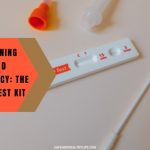
Many of us deal with the issue of not getting a good night sleep. This problem can come from stress throughout the day, thoughts that keep you up at night, etc. But, what does it mean when the fatigue you are experiencing persists longer than three weeks? Or, you have a difficult time being able to stay asleep at night? People who suffer from sleep disorders will disregard the issue, and fail to accept that there is a problem. According to the National Sleep Foundation, roughly 7 out of 10 Americans experience problems when it comes to sleeping. Majority of these people will remain undiagnosed and untreated; most likely because they may not even know the severity of their condition. You are completely unaware of what is going on because you are sleeping. So, it is easy to give little weight to the matter at hand. But, the longer you wait on the subject, the more complications you will experience to your overall well-being. It is better to get to the root of your concern, and the best way to do that is to have a sleep study performed.
What is a Sleep Study?
Sleep is an important function to growth and development of the body; even when it comes to our immune system, as well as the cognitive memory. When you face an obstacle that hinders this repeatedly, then it needs to be addressed. The best way to tackle your sleep problem head on is by taking part in a sleep study.
There are four types of sleep studies:
- Polysomnogram – This is an overnight sleep study. This one of the most common studies to use on almost all of the sleep, as well as sleep related movement, disorders. With this, you are hooked up to multiple machines, and various parts of your body are being measured while you sleep.
- Multiple Sleep Latency Test – This sleep study happens only during the day to measure your grogginess, and whether or not your breathing treatments are working properly. This study will normally follow a Polysomnogram, and only counts record when you fall asleep. It’s a series of 5 naps in a twenty-minute window.
- Maintenance of wakefulness test – This sleep study measures your alertness, along with how easy it is for you to stay awake throughout the day. The only time this test will really be required is when there is a history of extreme daytime fatigue.
- Home Sleep Test – There are a few requirements in order to qualify for a home sleep test. You have to have been suffering from moderate to severe obstructive sleep apnea to qualify. What you do, is show up to the clinic during the day and collect a small device that includes instructions on how to use it.
Top 3 Reasons Why to Perform a Sleep Study
Health
Both your physical and mental health will be affected in the long run if you continue to avoid you sleep problem. When it comes to the physical, you will experience stress and fatigue from a lack of rest. Over time, obesity will happen because of a high diet of sugars coinciding with no sleep. Also, high blood pressure will happen that coincides with heart disease. As for your mental, a lot of feelings will come to light when you do nothing. Mood swings happen, which can stem from depression. Anxiety will increase. Your cognitive memory will be impaired because you are so tired throughout the day. These are all serious issues that should not be ignored.
Your Partner
Even if you are unaware of your problems, the person next to you might be facing them head on. They will usually be the one to bring the issue up. The one disorder that will have an impact on your partner’s life is obstructive sleep apnea. You are snoring loudly, and at times you might even stop breathing. That can worry a partner.
Worth the Cost
The biggest concern in anybody’s life is paying high medical bills. And sometimes, when it comes to undergoing a sleep study, you do have to pay the price. Luckily, these days insurance companies do recognize sleep disorders as a health issue and will try to check them at a fair cost. But, it is always best to double check what the type of coverage offered before you apply. If you are curious about the comparison in cost when it comes to going to a lab or staying home, then take the time to contact your insurance provider for further information.
Why a Home Sleep Test is the Best Option
First of all, a home test is only a third of the cost for what it would take to go to a lab. Also, you are in the comfort of your own home. You set the time. You decide when to go to sleep. It is all in your control. There is nothing more comforting than falling asleep in familiar surroundings. Patients who go into a lab for evaluation will typically go through a first night effect and have trouble getting a good night sleep. That makes it hard to yield decent results. But, if you do it at home, you are given a small portable device; typically about the size of a telephone handset. You pick it up from your doctor, and wear it around 1-3 nights; depending on the severity of the sleep apnea. Your only job is to take the device back and return it; then the clinic will upload and interpret the results. It is done all on your own time. There is nothing better than that.
About The Author:
Over the many years, we’ve been in operation, VirtuOx has built a solid reputation as an authority on sleep disorders. We have a very committed and professional workforce that’s results oriented and dedicated to solving sleep apnea and other sleep related conditions.




